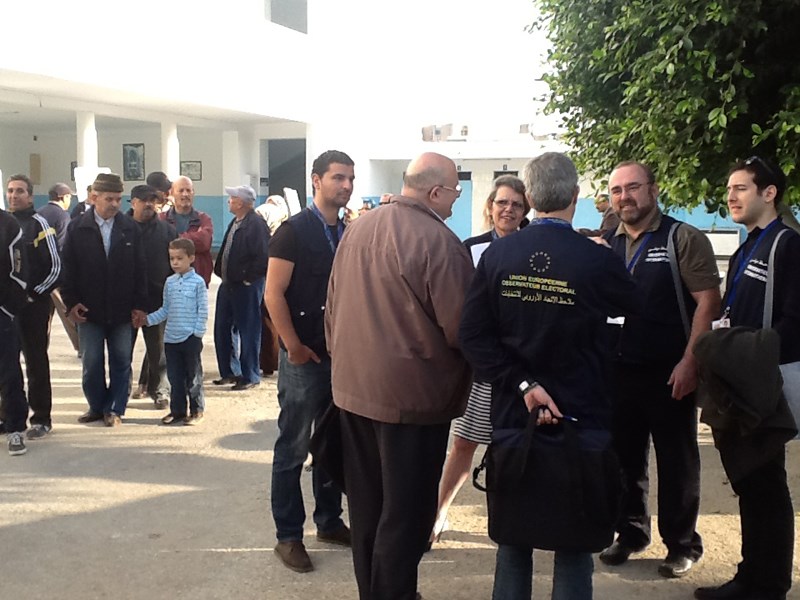Roughly three years ago in Tunisia, a small shopkeeper was so distraught by the dictatorial state that, like the iconic monk during the Vietnam War, he lit himself on fire in a public square out of protest. This was the beginning of the Arab Spring.
If you’re reading this on Sunday, Dec. 21, Tunisia is — right this very moment — holding its first democratic election. And Gibsons resident Greg Lyle is front and centre of it all as part of a group of Canadians (including Olivia Chow) overseeing this election.
There is a lot riding on it, according to Lyle.
“They are really carrying the hopes of the world for Arab democracy,” Lyle told Coast Reporter, the day before he flew to Tunisia. “As you look across the Arab world, Iraq and Syria are essentially failed states at the moment.”
Libya is another essentially failed state. Algeria has serious unrest going on. Morocco, Saudi Arabia, Egypt, none democratic — at least by Canadian standards — and all brimming with turmoil, he added. Jordan, with its monarchy and limited parliament, might not be in the headlines as much as its neighbours, but it’s “no free country,” Lyle said.
“It’s pretty hard to find any place that’s even close to where Tunisia is in terms of the development of democracy,” he said.
Lyle and the rest of the representatives from the National Democratic Institute for International Affairs aren’t in Tunisia to sway the election or give preferential treatment to either candidate. Their role is to ensure that Tunisia and the rest of the world know that the election system is being run efficiently. Part of that is to prevent against cheating, intimidation or campaigning inside the polling stations.
“The last time I was [in Tunisia] in November, what I saw was a very smoothly run election campaign,” Lyle said.
Last October was the first part of the Tunisian election. Twenty-seven candidates were narrowed down to two: Mohamed Moncef Marzouki from the Congress for the Republic party and Béji Caïd Essebsi from the Nidaa Tounes party.
Both platforms focus mainly on unemployment — specifically for youth — and the poor economy. The main point of disagreement between these two is who they are letting into their governments.
Marzouki, who was appointed as interim president in 2011 by the Constituent Assembly, refuses to accept anyone who ever held a government position under the despotic rule of pre-2011.
Essebsi, who is a surprising 88 years old, has a number of government workers from the old regime in his party.
For many Tunisians living under the old regime, political allegiance was more of a symbolic act for socio-economic climbers than a true devotion to a specific political doctrine.
As far as Essebsi is concerned, these people have held government jobs for years. They know what they’re doing.
There is an obscure rule in Tunisian election law: in the event of a tie, the oldest candidate wins. But a tie is very unlikely with a population of just under 11 million.
For Tunisia, democracy is becoming a reality. For the rest of the Western world, it’s the first good news to come out of the Middle East in quite awhile.
“In the Arab world we see a lot of bad news, we don’t always see the good news. This is a fundamentally a good news story,” Lyle said.



